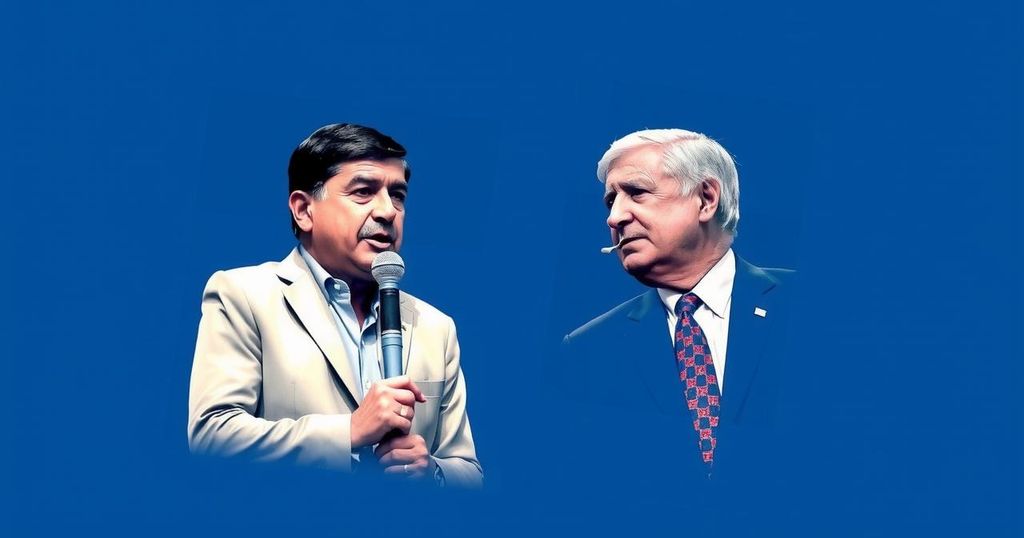Uruguay Approaches Presidential Run-off Amid Unique Political Landscape

Uruguay is set for a presidential run-off election on November 24, featuring leftist Yamandu Orsi and centre-right Alvaro Delgado, following a vote where Orsi received 43.2 percent and Delgado 28 percent. Additionally, recent referendums on retirement age and police powers seem to have been rejected. This election highlights a unique political moment for Uruguay, contrasting with regional trends and focusing on public concerns about crime.
Polling stations in Uruguay have concluded the presidential election, which appears to be leading to a run-off vote next month. The candidates vying for the presidency are Yamandu Orsi, a leftist history teacher associated with the centre-left Frente Amplio party, and Alvaro Delgado, a centre-right veterinarian from the Partido Nacional. Polling suggests that Orsi received approximately 43.2 percent of the initial vote, while Delgado acquired around 28 percent, setting the stage for a run-off on November 24. Andres Ojeda, a media-savvy lawyer, came in third with an estimated 15.5 to 16 percent of the vote.
The political landscape in Uruguay, characterized by a history of relatively stable governance, is witnessing a pivotal moment as it heads towards a run-off election. The candidates, representing distinct political ideologies, reflect a balance in voter sentiments amidst regional political upheaval. Uruguayans recently participated in this election while also voting on referendums concerning the retirement age and police powers, which early exit polls indicate were rejected by voters. This election is particularly notable as it breaks from the sharp right-left divides seen in neighboring Latin American countries, with a strong focus on crime linked to drug trafficking affecting public opinion and electoral behavior. President Luis Lacalle Pou, currently unable to seek a second consecutive term, has maintained a 50 percent approval rating but faces scrutiny over crime rates.
In conclusion, the upcoming presidential run-off in Uruguay represents a crucial point in the nation’s political journey, with candidates Orsi and Delgado appealing to diverse voter bases amid rising concerns over crime. The rejection of recent referendums signifies a desire for continuity and caution among the electorate, reflecting their contentment with the government’s overall performance, despite unrest regarding security. As Uruguay prepares to vote on November 24, the implications of this election will likely shape the nation’s direction in the years ahead.
Original Source: www.aljazeera.com







